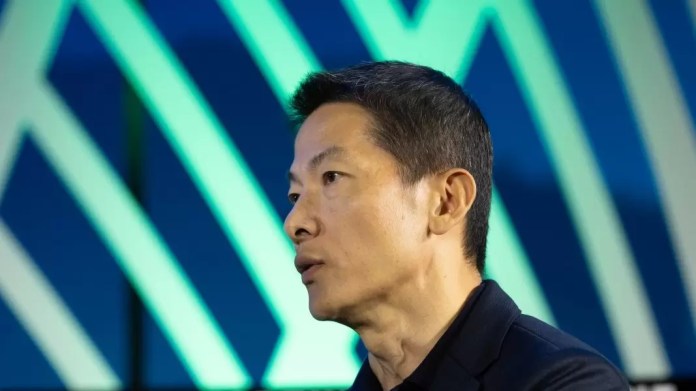Following reports indicating that the Biden administration is deliberating caps on advanced Nvidia chip sales to Arabian Gulf countries, Peng Xiao, CEO of G42, a Microsoft-backed artificial intelligence firm based in Abu Dhabi, said that such developments would not come as a surprise.
He stated, “I don’t think it’s anything new,” alluding to the existing framework of export controls designed to mitigate security risks associated with emerging technologies.
Historically, US export restrictions have been primarily aimed at curbing China’s technological aspirations, particularly in the realm of artificial intelligence.
However, the possible extension of these caps to other countries in the Middle East raises significant concerns regarding technological access and international collaboration within the sector.
Currently, the US government has instituted limitations on AI chip shipments from leading firms, including Nvidia and Advanced Micro Devices Inc, to over 40 nations across the Middle East, Africa, and Asia, primarily to prevent these technologies from being repurposed for Chinese military applications.
Exploring diverse partnerships
G42 is positioning itself to emerge as a leader in AI within the Middle East. Operating under the auspices of Sheikh Tahnoon bin Zayed Al Nahyan, a prominent figure in the UAE’s political landscape, G42 is actively deploying high-performance Nvidia H100 GPUs while also exploring diverse partnerships to expand its hardware capabilities.
Notably, the firm has garnered significant revenue from startups such as Cerebras Systems Inc., which aims to compete with Nvidia in the AI computing arena.
Despite the shifting geopolitical landscape, Xiao remains optimistic about future collaborations between G42 and the US, regardless of the outcome of the impending presidential election.
He underscored a solid collaboration framework between the UAE and the United States in the fields of AI and technology, signifying a mutual commitment to innovation and partnership.
Xiao’s recent discussions with US leaders, including President Biden and key executives from major technology companies, underscore a proactive approach to international cooperation, even amidst the uncertainty surrounding US policies.
Discover more from TechChannel News
Subscribe to get the latest posts sent to your email.




